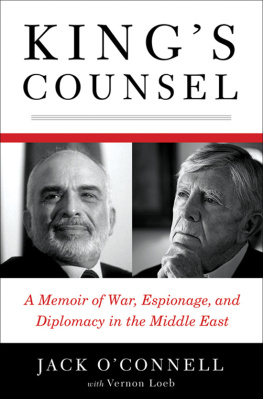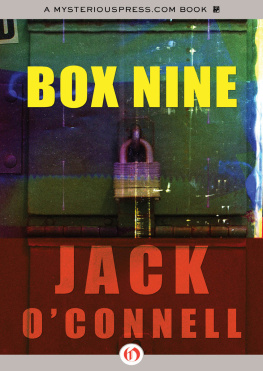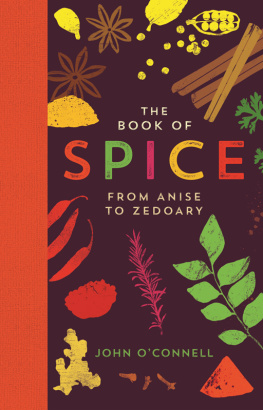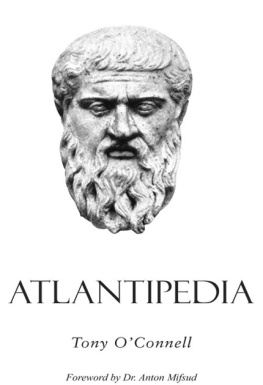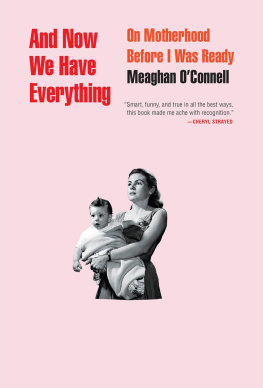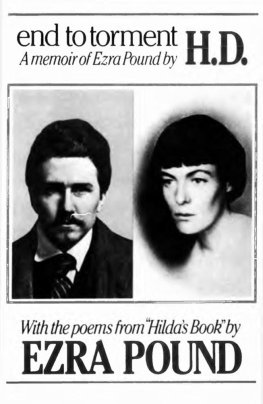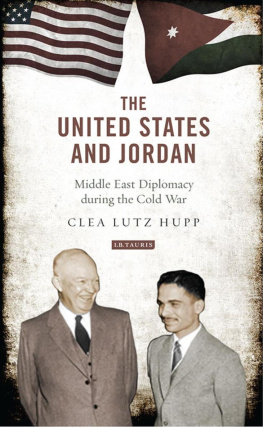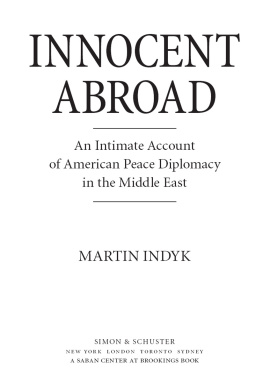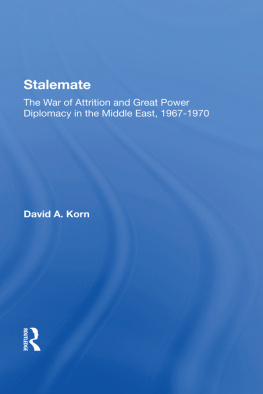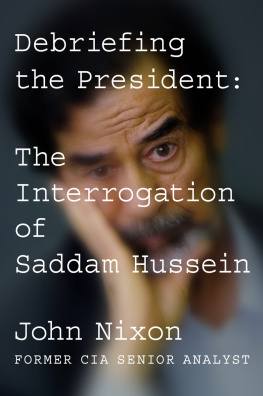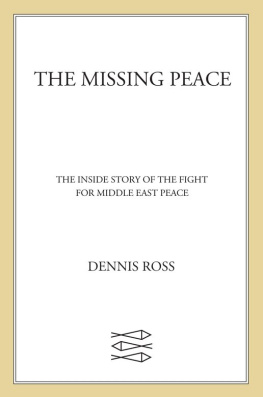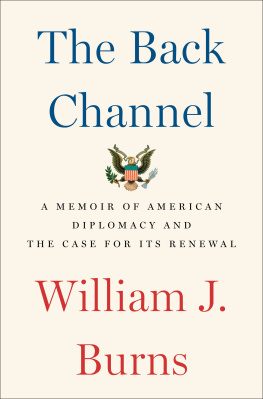
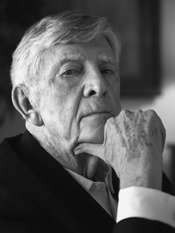
Copyright 2011 by the Estate of John W. OConnell
Frontispiece: Mark Vohwinkel Jr. Photography
All rights reserved
Printed in the United States of America
First Edition
For information about permission to reproduce selections from this book,
write to Permissions, W. W. Norton & Company, Inc.,
500 Fifth Avenue, New York, NY 10110
For information about special discounts for bulk purchases, please contact
W. W. Norton Special Sales at specialsales@wwnorton.com or 800-233-4830
Manufacturing by Courier Westford
Book design by Chris Welch
Production manager: Anna Oler
Ebook conversion by Erin Schultz, TIPS Technical Publishing, Inc.
Library of Congress Cataloging-in-Publication Data
OConnell, Jack, 19212010.
Kings counsel : a memoir of war, espionage, and diplomacy
in the Middle East / Jack OConnell with Vernon Loeb. 1st ed.
p. cm.
Includes index.
ISBN 978-0-393-06334-9 (hardcover)
1. OConnell, Jack, 19212010. 2. Hussein, King of Jordan, 19351999Friends
and associates. 3. Political consultantsJordanBiography. 4. Political consultants
United StatesBiography. 5. LawyersWashington (D.C.)Biography. 6. United States. Central Intelligence AgencyOfficials and employeesBiography.
7. IsraelArab War, 1967. 8. JordanForeign relationsUnited States. 9. United StatesForeign relationsJordan. 10. Middle EastPolitics and government1945 I. Title.
DS154.52.O26A3 2011
956.04dc22
2011003263
W. W. Norton & Company, Inc.
500 Fifth Avenue, New York, N.Y. 10110
www.wwnorton.com
W. W. Norton & Company Ltd.
Castle House, 75/76 Wells Street, London W1T 3QT
1234567890
To the people of the Middle East, who deserve peace,
to King Hussein, who wanted the truth written,
and to my family, who supported me throughout.
CONTENTS
INTRODUCTION
I joined CIA by default. A friendly senator referred me to the agencys legal department. He assumed it dealt with international law issues, for which I was well educated. I had earned, by the early 1950s, a bachelors degree in foreign service, a law degree from Georgetown, and a masters in Islamic law at the Punjab University in Lahore, Pakistan, as a two-year Fulbright Fellow. I later added a Georgetown PhD in international law. But when I went for my CIA interview, the agencys general counsel didnt think I would enjoy writing leases and purchasing contracts, which he claimed was all the legal division did. He was right. He sent me down to the Operations Directorate, for which he thought I was well qualified. There, I met with a couple of young and idealistic spies who gave me their change the world pitch. I didnt think I could change the world, but I thought I could spend a few years seeing it, before returning to the law.
After high school graduation in Sioux Falls, South Dakota, in 1938, our family moved to Washington, D.C. My father was dying and wanted his two sons to base their future in Washington, where his mother and favorite brother resided, and more opportunities existed. A high school teacher helped me obtain a clerks job at the Federal Deposit Insurance Corporation (FDIC) through her brother, who was the deputy director. I then pursued my childhood dream of attending Notre Dame and playing football. One year of work would provide enough savings for a year of school, which was unbelievable, only $750 board, room, and tuition per year. I saved $1,000. More exciting to me was that I received a football scholarship in the form of a job in the university library. An automobile accident resulting in a severe concussion and fractured skull ended whatever football dreams I had. I returned to my FDIC job and entered Georgetown Foreign Service School for my sophomore year and the beginning of my international law program, having satisfied, at least partially, a childhood dream.
Studies at the Georgetown undergraduate level were interrupted by the war: V-12 school at Villanova College for four months, Midshipman School at Northwestern University for ninety days, becoming an ensign and minesweeping officer on a 180-foot minesweeper (one hundred men and ten officers) in the Pacific for over a year. Our ship was assigned six months of postwar sweeping of Japan, Formosa (Taiwan), Korea, and the Yellow Sea of China. There were two highlights. First, an unauthorized visit by ship and crew to the smoldering ruins of Nagasaki a few days after it was bombed. This awesome experience was the basis for my doctoral dissertation: The Right of Self-Preservation Under International Law. I found the atom bomb illegal, per se. Second, due to the postwar minesweeping, our ship received a presidential citation for sweeping more mines than any other minesweeper in the Pacific theatre.
Influenced by my overseas experiences during the war, I already knew by 1946 what I wanted to do with my lifeor thought I did. My association with Dr. Carroll Quigley, the outstanding Harvard graduate who taught history at the Georgetown Foreign Service School, and my uncles exciting local trial law practice, combined to inspire me to teach international law at the graduate or law school level. Quigley affected many students that way. Wishing to emulate him, President Bill Clinton, a Georgetown alum, credited Quigley in his acceptance speech at the 1992 Democratic Convention for teaching him about personal moral responsibility. I not only knew what I wanted to do, but what I needed to do to get there, upon the advice of other international lawyers. To be fully qualified I needed a law degree for credibility and an international specialty for distinction. So, as soon as I obtained my Foreign Service degree from Georgetown, I enrolled in the law school for morning classes and the graduate school for a PhD in the evening. It was against school rules to be enrolled in two schools at the same time, so I did not attend my law school graduation, which was held in conjunction with the other schools at Georgetown. I feared professors in the graduate school might recognize me and that I was in violation of school rules, with dire penalties.
With a law degree and my academic credibility in my back pocket, the next jobs were to continue my work for a PhD in international law and a legal specialty. The specialty was easier to decide than would be expected, mainly because of my acquaintance with Dr. James Heyworth-Dunne at the Georgetown Institute of Languages and Linguistics. He was an Oxford donan exchange professor from Englandand a renowned Islamic lawyer and scholar. He was married to a wealthy lady from an aristocratic family from India. They lived in a mansion and were part of high society in Washington. They included my wife and me in some of their parties. Dunne said he joined MI6 during World War II and was stationed in Cairo. One of his closest friends in Washington was Kim Philby, MI6 station chief in the British Embassy. I ran into Philby on a number of occasions at social events and visits to the Heyworth home. The meetings were uneventful. I did not know then that he was a Soviet mole. But our paths would cross again, eventfully, in Beirut during the period before he escaped to the USSR.
Professor Heyworth-Dunne not only helped seal my decision to follow his lead by specializing in Islamic law, but helped me obtain a two-year Fulbright Fellowship at the Punjab University in Lahore, Pakistan, to earn a masters degree in the subject. As he pointed out, there were many Islamic lawyers in Europe, but the United States was virgin ground. We finally picked Pakistan over Egypt for the studies because no one had applied for a fellowship to Pakistan. I was the first candidate, so the Fulbright program pushed me to choose Pakistan rather than Egypt. Thats why I received a two-year fellowship, while only one year is normalit takes two years to earn a masters degree.
Next page
